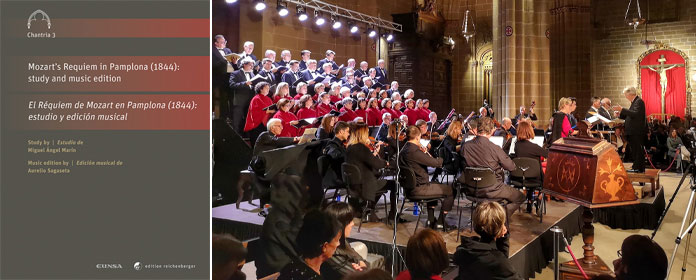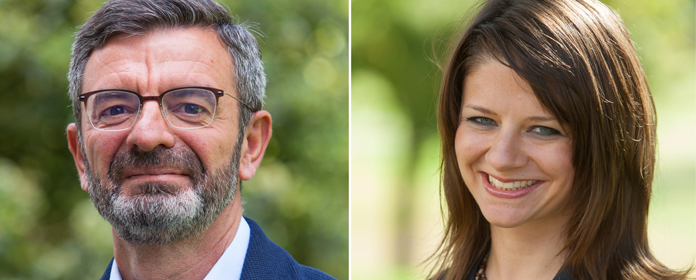A stay to analyse expressions of wanting to die at status of advanced illness.
Alazne Belar, ICS doctoral student, is spending a stay in Lausanne (Switzerland) thanks to a scholarship of the Government of Navarra.

PHOTO: Natalia Rouzaut
Alazne Belar, doctoral student of the ATLANTES Program of the Institute for Culture and Society (ICS) of the University of Navarra, is carrying out a research stay at the Vaud University Hospital Center (CHUV) in Lausanne (Switzerland). There, the doctoral student will analyze data on expressions of wanting to die in patients with an advanced disease thanks to a predoctoral financial aid of mobility international offered by the Government of Navarra.
"Switzerland's cultural, religious, social and legal context regarding the end of life is very different from ours," he says, "so learning about other experiences or points of view will help us understand the experiences of patients who want to die.
The researcher will share with the CHUV team the study she carried out on 200 patients from the Clínica Universidad de Navarra and the Hospital San Juan de Dios of Pamplona during her thesis . In this way, she believes that she will be able to understand new ideas and points of view "increasing the possibility of new hypotheses and questions".
Its research will be coordinated by Philip Larkin, Full Professor of palliative care in nursing at the University of Lausanne and director academic high school of Education and research of Care of the same center, who is an expert in qualitative research . In addition, he will have the partnership of professors Gian Domenico Borasio and Ralf Jox at CHUV, experts in the study of the desire to die.
The desire to die in Spain and SwitzerlandAccording to the researcher, the perception of the end of life and the expressions of wanting to die depend on the sociocultural context and the moral understanding of life. "The contrast of countries in the expressions of wanting to die in status of advanced disease can enrich the doctoral study, facilitating a deeper understanding of the phenomenon," says Belar.
Patients may perceive illness, loss of autonomy, the appearance of physical symptoms or death itself differently depending on their culture, as well as their perception of issues such as personal dignity, control and dependence. "There are different understandings in each culture, and all of them influence the end-of-life experience and the occurrence of experiences of wanting to die," he says.
On the other hand, Belar argues that the medical paradigm in many cultures has influenced the perception of the life process. "For many years, death has been a taboo that we tried to avoid, thus altering the natural view of the life process and influencing the perception of the end of life," he concludes.




